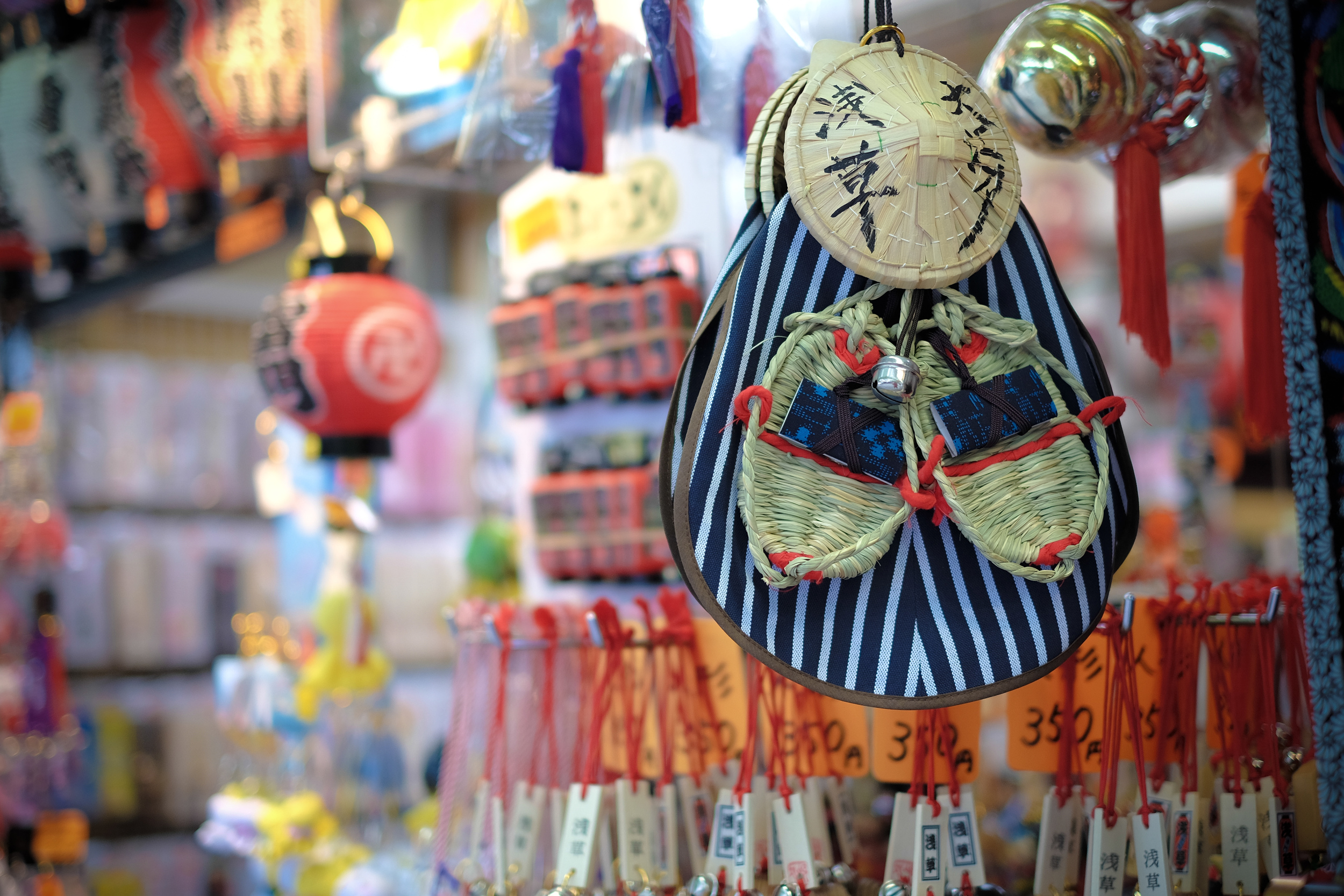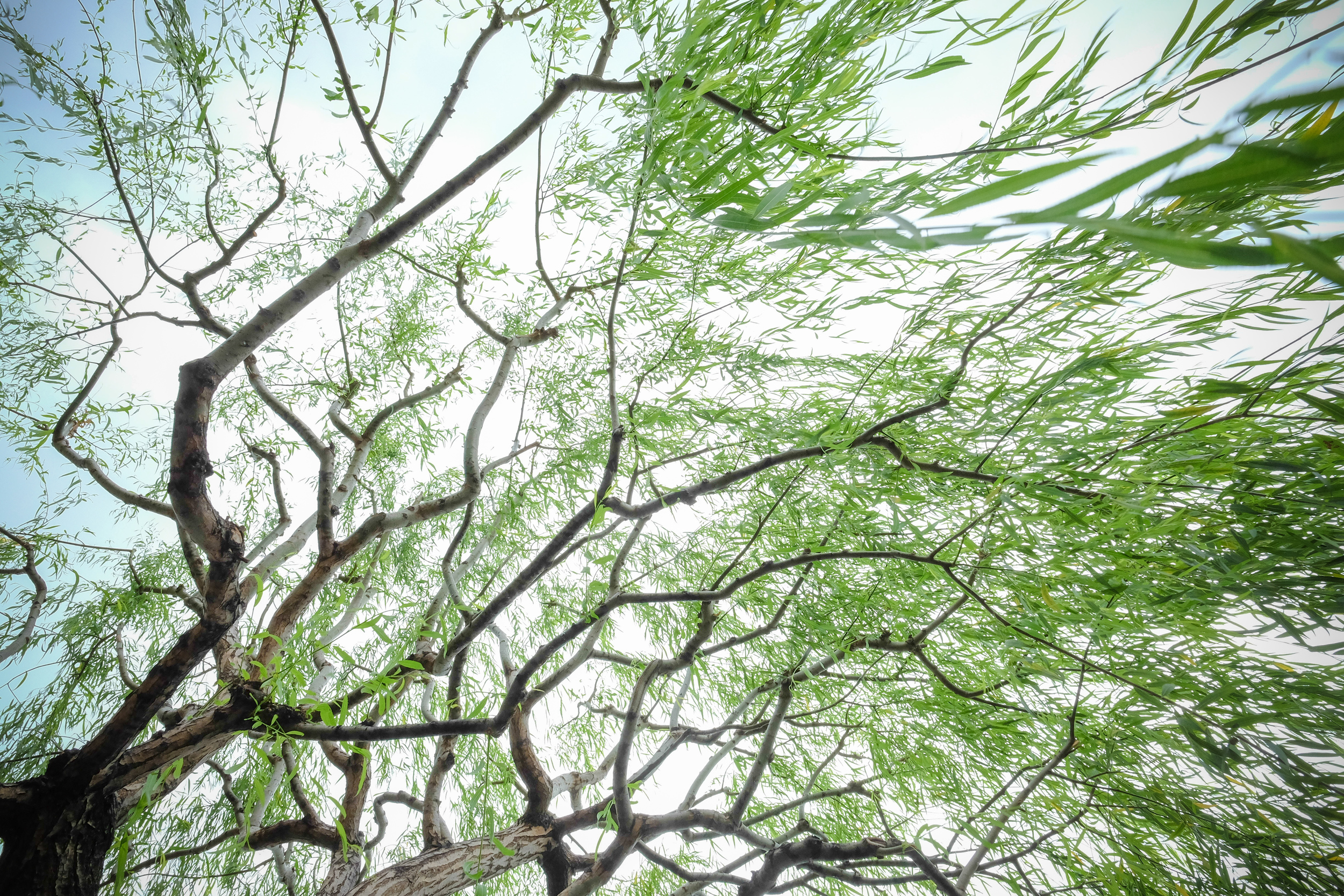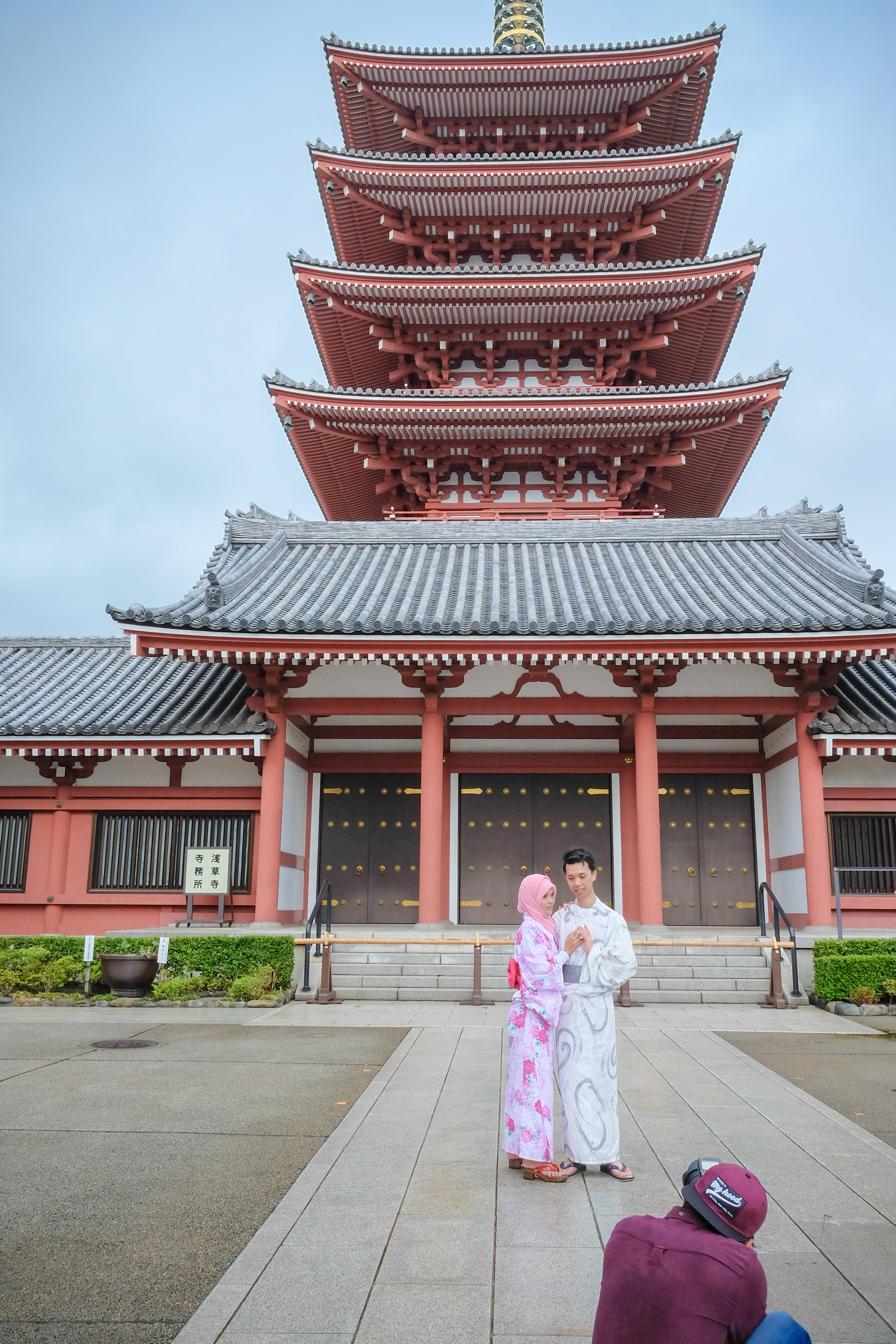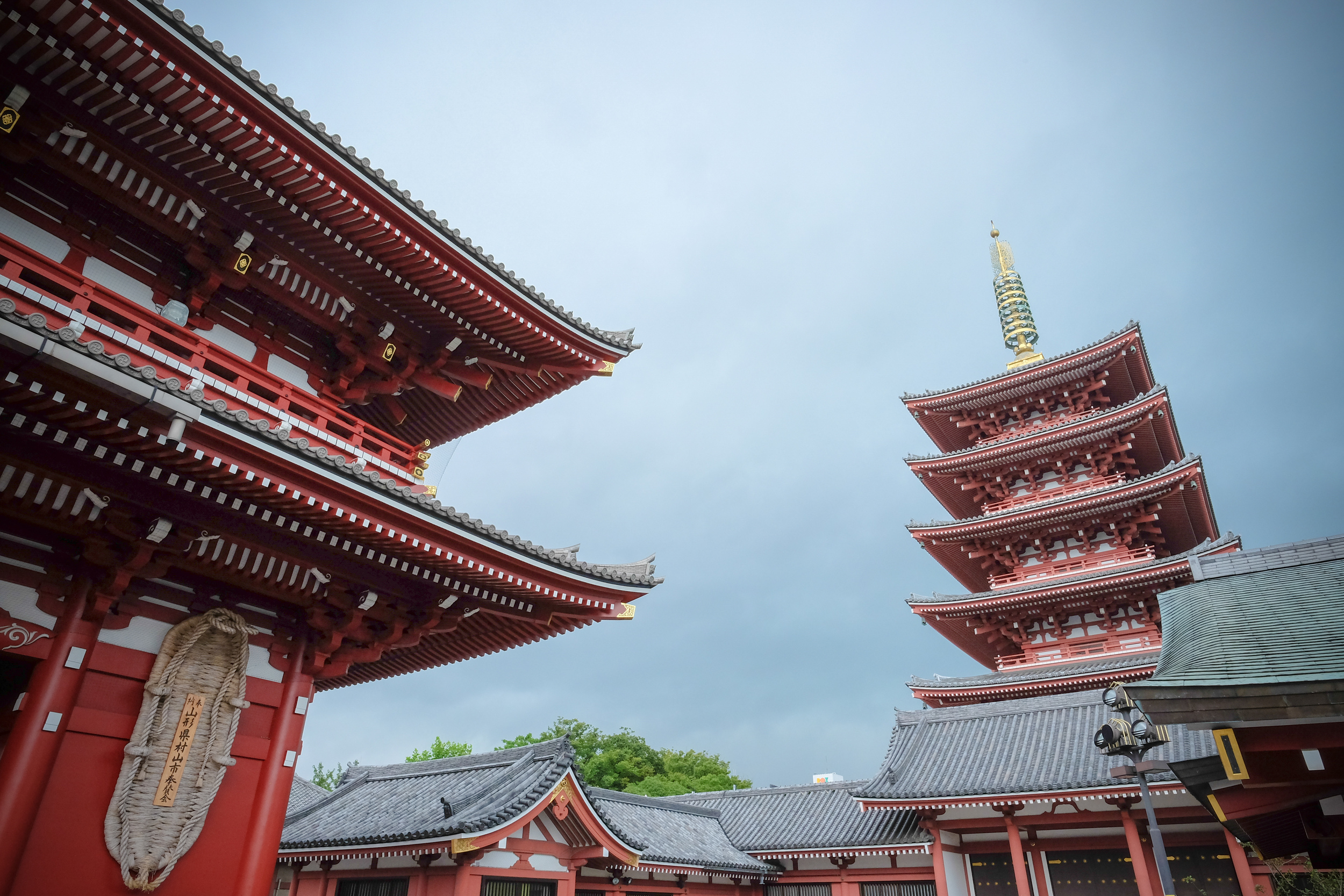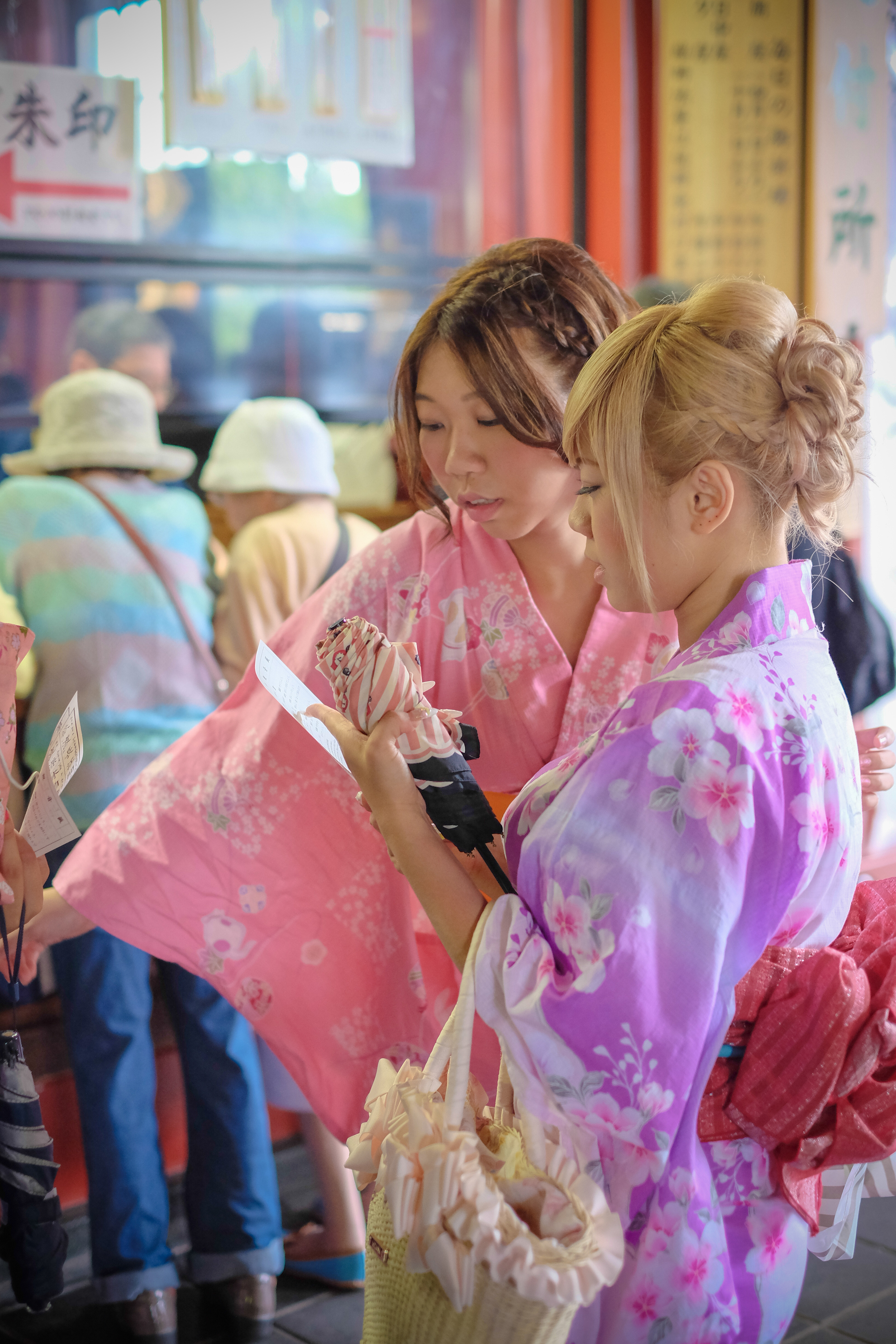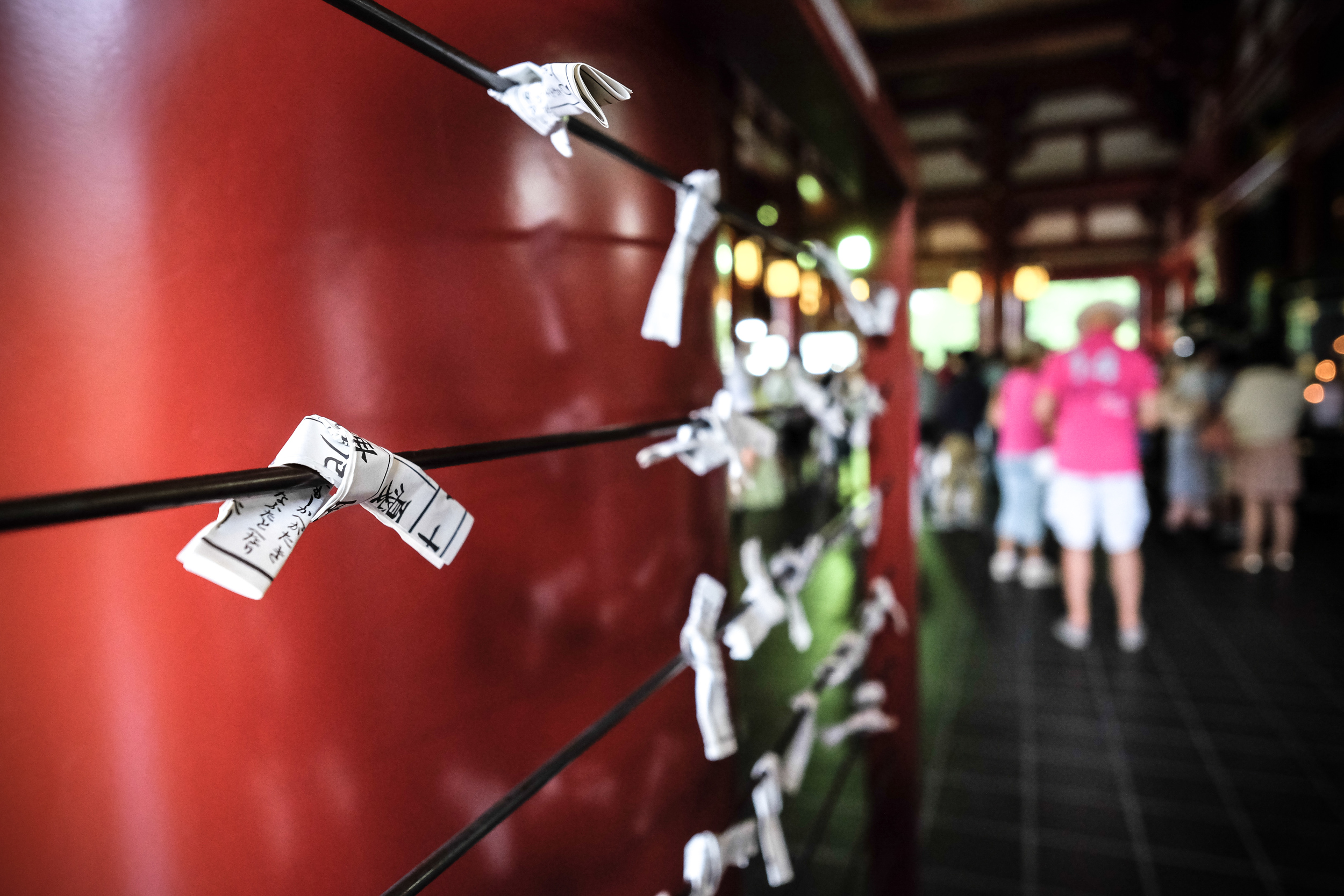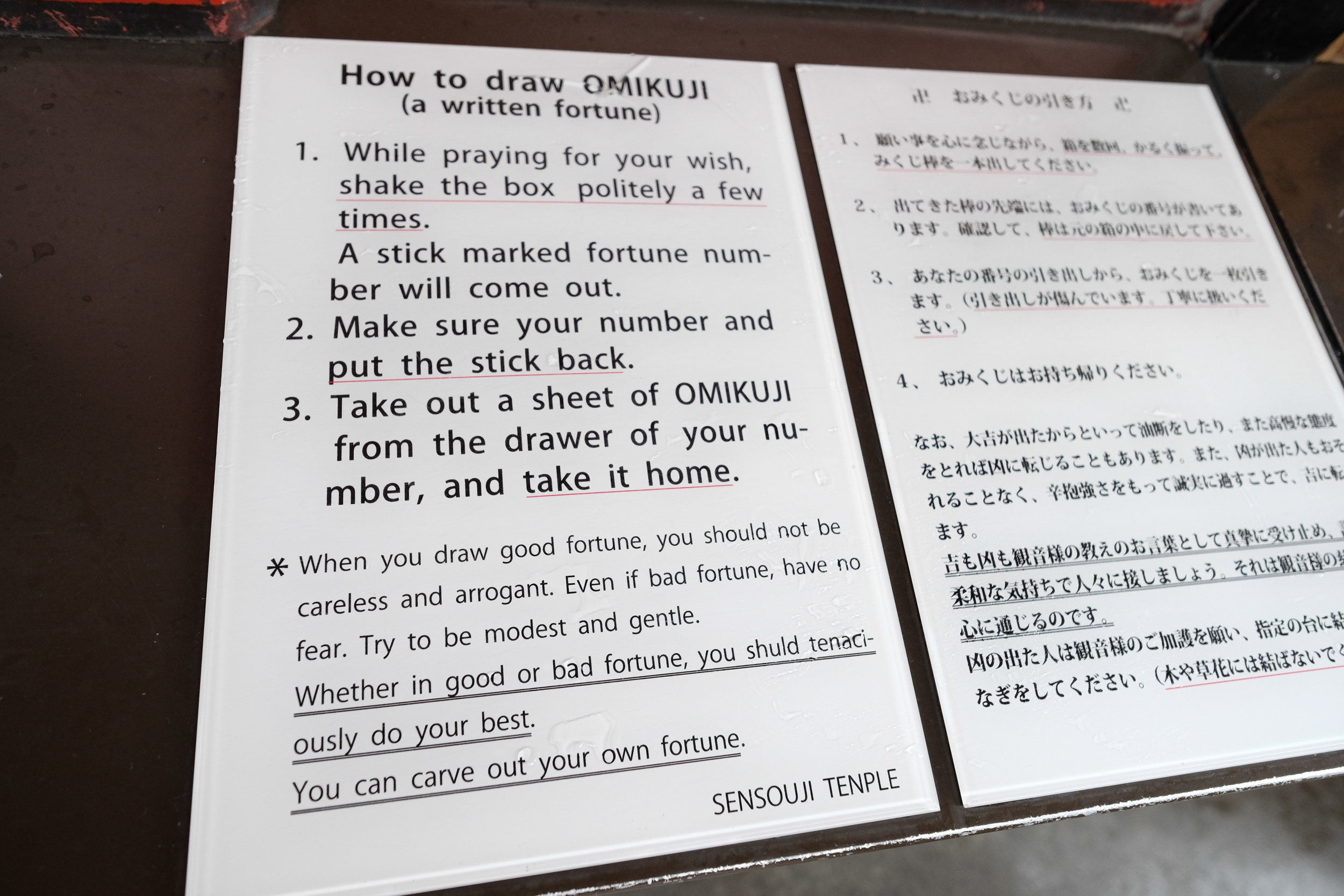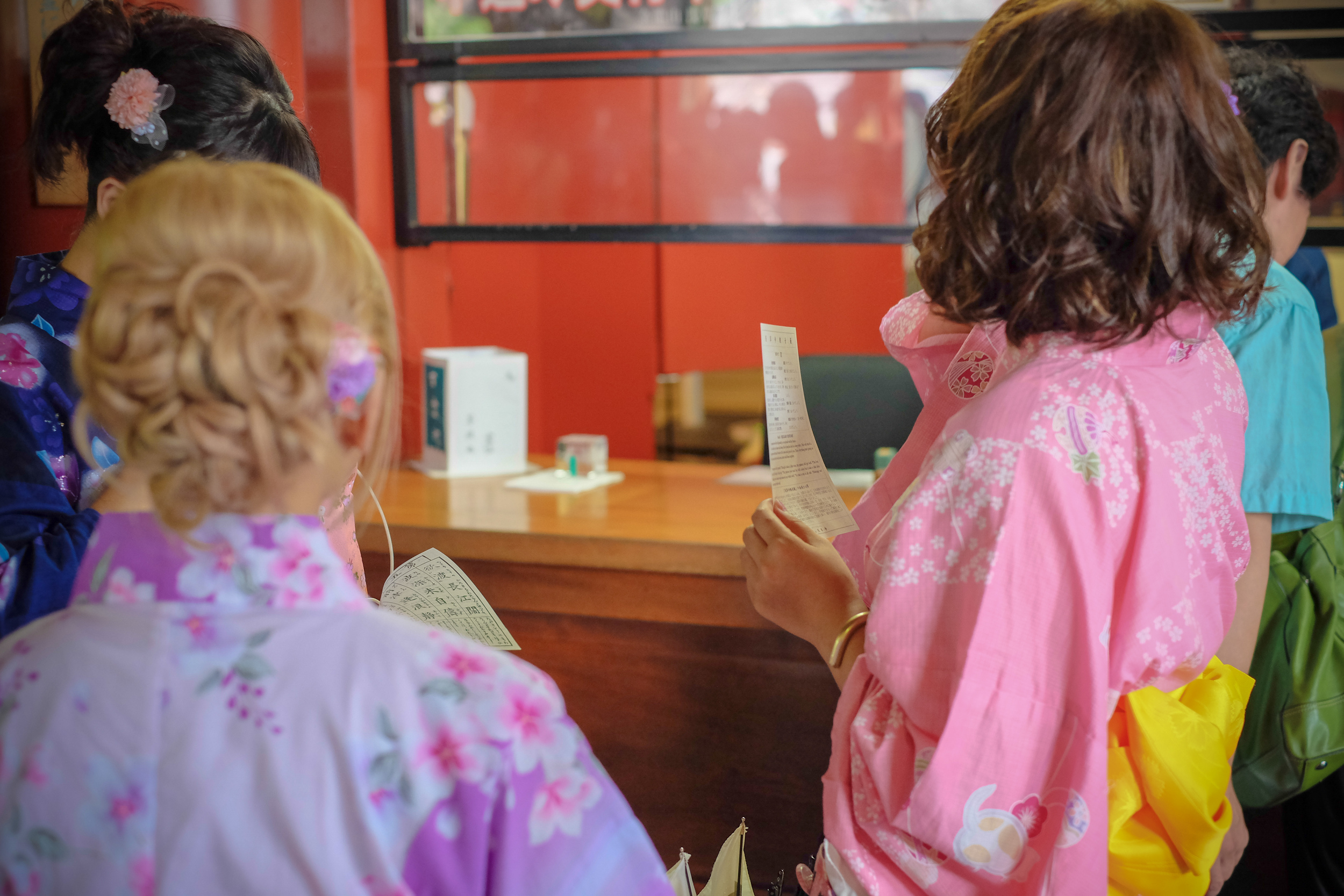SENSOJI TEMPLE
Asakusa, Tokyo
8 January 2015
As I approach the temple on a rainy morning, umbrellas are the first devotion today. According to legend, a golden statue of Kannon (the Buddhist Goddess of Mercy) was miraculously pulled out of nearby Sumida River by two local fishermen in the year 628 AD. They enshrined the Kannon and it has remained on the same spot ever since.
Most people approach the temple through Nakamise-dori, the shopping street that leads to the temple precinct. It’s a good place to pick up a yukata (traditional folding fan) or try sembei (rice crackers). Next, pass through the Hozomon Gate, flanked by Nio Guardians, the guardian deities of Buddha. First built in 942AD, the present gate dates from 1964. The Guju-no-To is the second highest pagoda in Japan, the Five Story Pagoda is said to contain some of the Buddha’s ashes.
Before entering the Hondo (main hall), it is good custom for visitors to wash their hands and rub incense into bodies to bring good health.
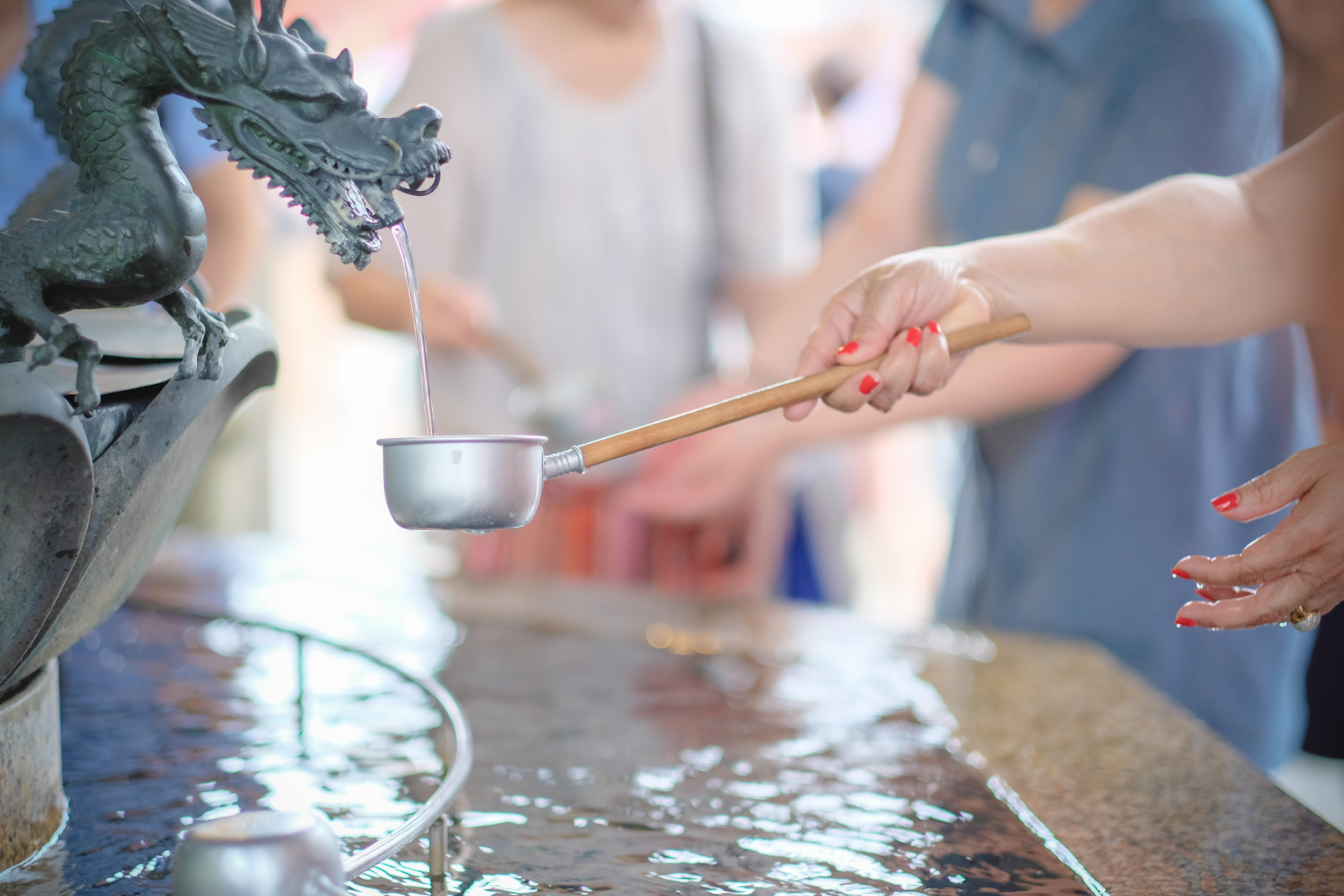

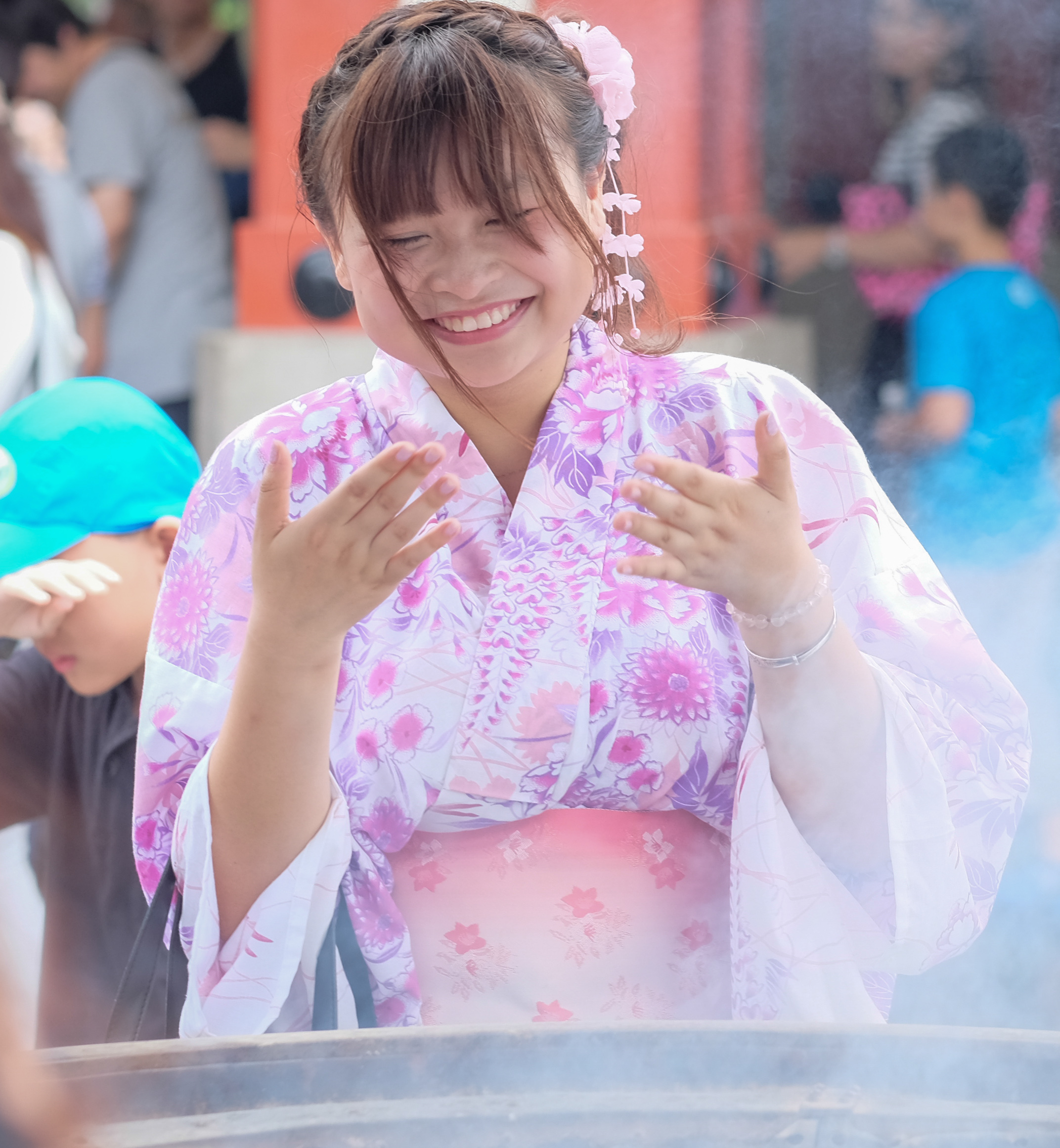
Other than housing the Kannon image, the ceiling is painted with beatific images of the Buddha. Visitors mill about, some dropping coins or lighting candles and others buying omikuji (paper fortune).


Unlike fortune cookies, which are vague at best, omikuji fortunes run the gamut from very good to terrible. Fortunately, there are racks set up to emulate matsu (pine trees), which people would traditionally use to tie the bad luck.
Text & Photos: Marc
All rights reserved. Use of this website constitutes agreement with our Terms of Use. bit.ly/1abaRR6




